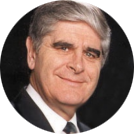Welcome to Let the Bible Speak Radio
First Time Here?
View Our Welcome VideoLocation
Let the Bible Speak
1207 Haywood Road
Greenville, SC 29615
About Us
Let the Bible Speak was formed in February 1973 and commenced broadcasting in April of the same year. It began in a very small way, broadcasting over just one station on the Isle of Man, and possessing only two tape recorders as its entire equipment.
However, under God, the work has grown steadily and is now a firmly established ministry. At present, the programmes, with a potential weekly audience of many millions, are heard over more than a dozen stations in North America, India, Africa, China and Asia. New outlets are added to the broadcasting list as and when suitable stations can be arranged.
Read More
